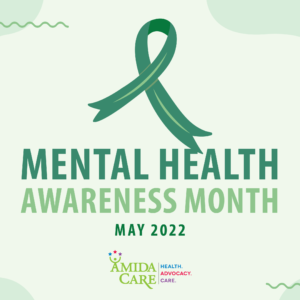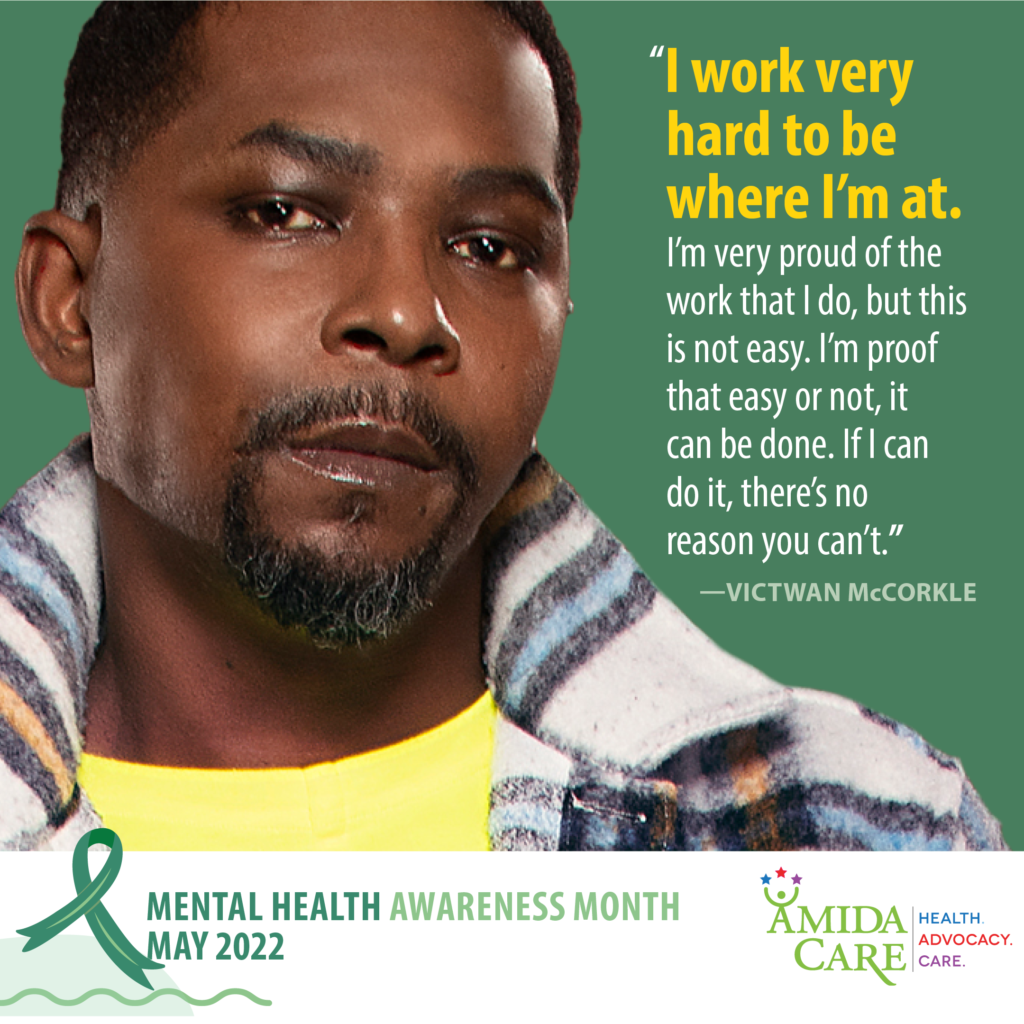Mental Health Awareness Month: Taking Control of Your Mental Health

Mental Health Awareness Month has been observed in May since 1949, a time to raise awareness about the importance of fighting stigma, providing resources, educating the public, and advocating for policies that support people with mental health issues and their families. After the last two years of COVID pandemic living, many people are realizing that stress, isolation, and uncertainty have taken a toll on their well-being.
According to a recent article for the National Institute on Minority Health and Health Disparities, the COVID-19 Pandemic Has Amplified the Effects of Racism on Mental Health. Depression and anxiety among American Indian/Alaska Native, Asian, Black, and Latinx people have increased during the pandemic, as has racism itself. Furthermore, this report from SAMHSA details how the COVID-19 pandemic spotlights racial and ethnic disparities in access to behavioral health care.
Given the stresses of the pandemic, it’s especially important that people experiencing mental health issues—particularly people of color—can access treatment and support, so they can better manage their health and live their best lives.
Victwan McCorkle is a former Amida Care member who began working at the plan as a Community Health Outreach Worker. He transitioned out of Medicaid to full time employment at Amida Care and is currently Supervisor of Peer Programs, as well as a 2022 spokesmodel for the HIV Stops with Me campaign. In addition to spreading the word and educating the community about HIV, Victwan often speaks out about mental health in order to support others who might be going through situations that are similar to his. He offers this advice:
- “The best thing I can do is manage my mental health and not let it control my entire life. At the very least, I can call somebody and say I’m not doing so well right now. We don’t have to talk about my depression, just talk about anything to get me out of the mindset that I’m in.”
- “You have to take the onus for your own health. Yes, there’s support out there but a lot of the work that has to be done is yours and part of that is figuring out which medication works for you. Give it time and communicate with your provider to find the right medication.”
- “Don’t be afraid to ask a question no matter how crazy it sounds. If you’re not happy with interactions at a facility or don’t think that a specific person can help you, you’re not going to get healthy in that situation. Take the time, invest in yourself and find somewhere or someone else.”
